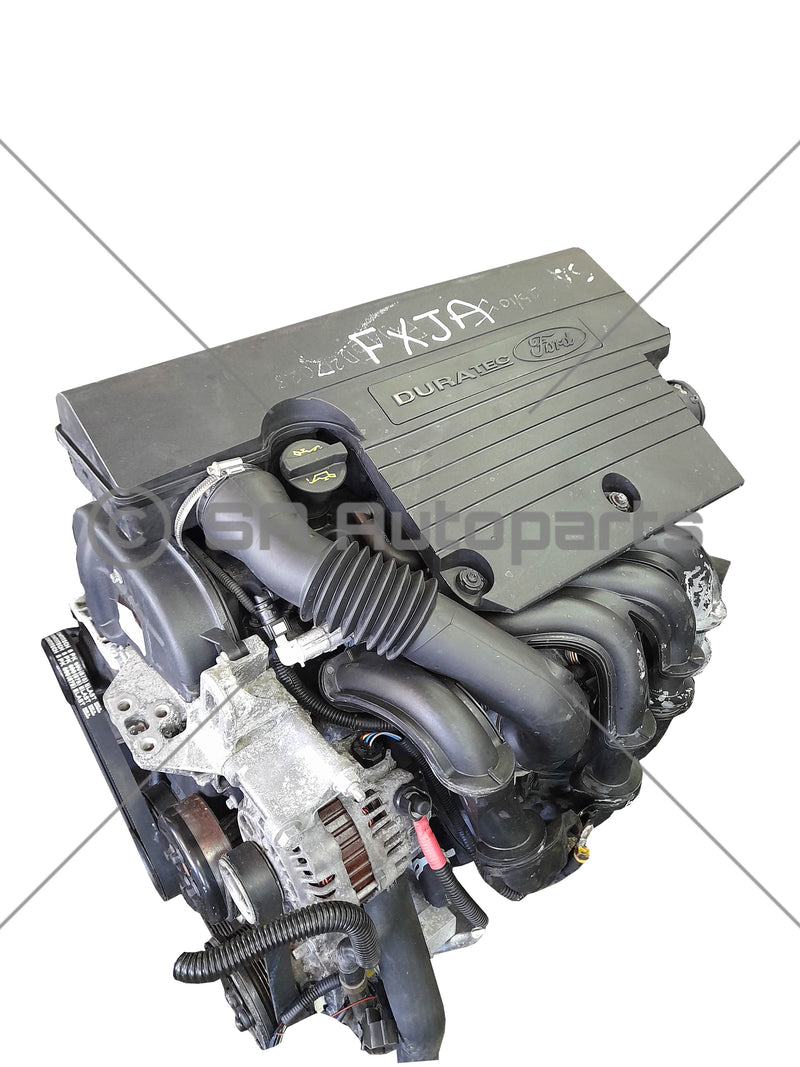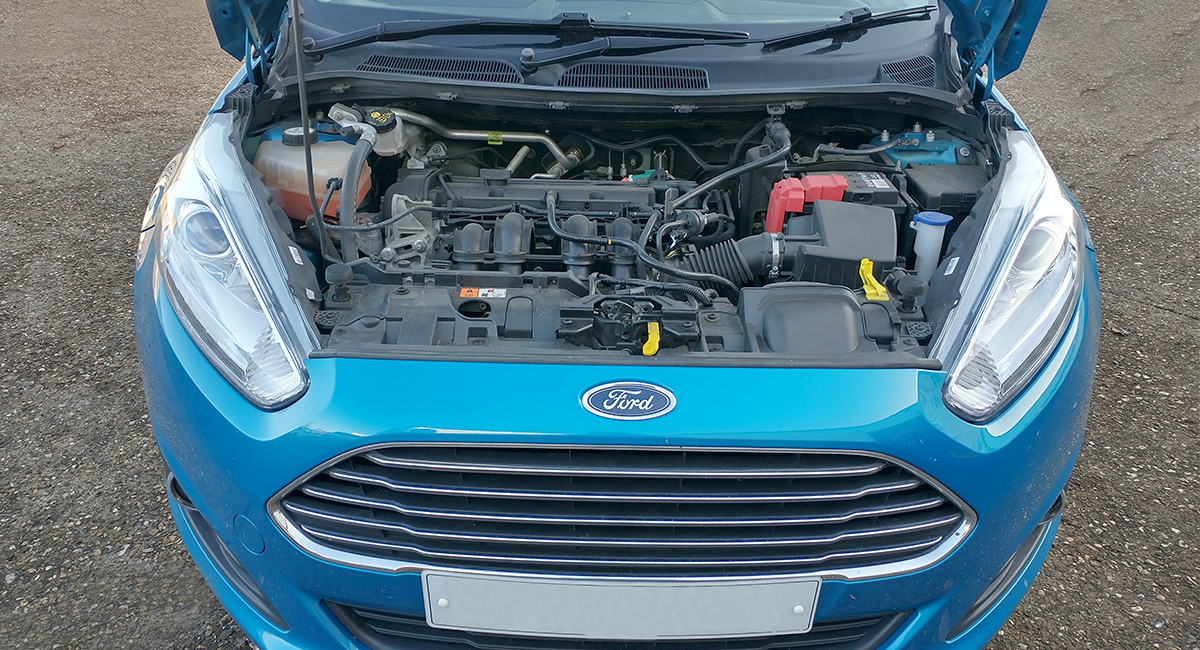How to Diagnose Ford Fiesta Engine Issues and Prevent Future Problems
Wiki Article
The Future of Engines: Advancements Driving Sustainable Power Solutions
As the auto industry browses the important shift in the direction of sustainability, the future of engines is significantly specified by groundbreaking technologies. Electric engine advancements, alongside promising developments in hydrogen fuel cells and biofuels, are improving the landscape of power solutions.Electric Engine Developments
The advancement of electrical engine growths indicates a pivotal shift in the automotive and aerospace industries, driven by the urgent need for lasting choices to nonrenewable fuel sources. This transition is defined by considerable advancements in battery technology, power electronic devices, and electric motor layout, which jointly improve the efficiency and performance of electrical engines.Current innovations have actually brought about the development of lighter, much more energy-dense batteries, such as lithium-silicon and solid-state batteries, which promise longer ranges and much shorter charging times. In addition, enhancements in electric motor performance, such as the usage of long-term magnets and advanced cooling down systems, allow electric engines to run successfully under varying problems. These improvements not just improve lorry efficiency but additionally add to a decrease in general power usage.
Furthermore, the combination of sophisticated software algorithms has actually enhanced power administration in electrical vehicles, enabling regenerative stopping and predictive billing techniques. As makers significantly embrace electrical propulsion, the aerospace and automobile sectors are seeing a standard shift in the direction of greener technologies. This advancement not just meets regulative needs but likewise aligns with customer choices for environmentally pleasant transportation options, strengthening electric engines as a keystone of future lasting movement.
Innovations in Biofuels
As the aerospace and vehicle industries increasingly focus on lasting power sources, improvements in biofuels become a complementary option to electric engines. Biofuels, obtained from natural materials such as crops, waste, and algae, provide a cutting-edge opportunity for lowering greenhouse gas emissions and reliance on nonrenewable fuel sources.Recent research has concentrated on improving the performance and sustainability of biofuel manufacturing. Second-generation biofuels make use of non-food feedstocks, minimizing competition with food supply and minimizing environmental effect. Developments in synthetic biology have allowed the design of bacteria to create biofuels a lot more properly, leading to greater returns and reduced manufacturing expenses.
Furthermore, the development of drop-in biofuels enables for smooth combination into existing framework, making it possible for a smoother shift for markets generally based on nonrenewable fuel sources. ford fiesta engine. These gas can be made use of in existing engines without modifications, promoting their fostering across various fields
Investments in biofuel innovation, in addition to encouraging policies, are necessary to drive advancement and scalability. As the global area looks for to deal with climate change, biofuels use a practical, prompt service that aligns with the overarching objective of sustainability in transport and air travel.
Hydrogen Fuel Cell Modern Technology
An expanding number of researchers and business are checking out hydrogen gas cell technology as a sensible option to conventional power resources in transportation and power systems. This innovation converts chemical power from hydrogen right into power with an electrochemical response, with water as the only byproduct, making it an eco-friendly option.The core of hydrogen fuel cells is the gas cell pile, where hydrogen particles are split right into protons and electrons. The flow of electrons generates electricity, while protons move via a membrane to integrate with oxygen from the air, creating water. This process leads to high performance and low exhausts, placing hydrogen fuel cells as a critical gamer in the change to sustainable energy.
Considerable advancements have been made in enhancing the durability and effectiveness of gas cells, alongside lowering expenses with cutting-edge manufacturing techniques. Moreover, the growth of hydrogen production methods, such as electrolysis powered by sustainable power resources, enhances the sustainability of the overall system. As facilities for hydrogen refueling expands and production techniques end up being a lot more efficient, hydrogen fuel cell technology holds terrific guarantee for decarbonizing various markets, including durable transportation and stationary power generation.
Hybrid Solutions and Their Impact
Crossbreed systems stand for a significant development in sustainable engine technology, merging traditional interior burning engines with electric propulsion to maximize energy efficiency and reduce emissions (ford fiesta engine). This twin technique enables vehicles to utilize both power sources, making it possible for better versatility in energy consumption and reducing reliance on nonrenewable fuel sources

In enhancement to environmental advantages, hybrid systems offer consumers a practical transition in the direction of fully electrical automobiles. They minimize range anxiety by incorporating the comfort of gasoline with the benefits of electric propulsion, making them an appealing option for a bigger audience. As manufacturers spend in hybrid innovation, the advancement of even more sophisticated battery systems and lightweight products remains to pop over to these guys enhance efficiency. In general, hybrid systems stand for a critical step in the direction of attaining lasting transport and resolving the urgent need for eco-friendly power remedies.
The Function of AI in Engine Style
Leveraging advanced algorithms and artificial intelligence methods, the automotive industry is progressively incorporating artificial intelligence (AI) right into engine layout procedures. AI enhances the effectiveness and efficiency of layout by analyzing large datasets to determine optimum arrangements and performance parameters. This capability enables designers to imitate various operating conditions and anticipate engine habits under several you could try here circumstances, significantly decreasing the time and expense connected with standard prototyping approaches.In addition, AI facilitates the development of advanced materials and combustion processes tailored for sustainability. By enhancing fuel performance and lessening emissions, AI-driven layouts straighten with international campaigns targeted at minimizing the carbon impact of automobile engines. Device knowing algorithms can also predict upkeep demands, leading to improved integrity and durability of engine elements.
Furthermore, AI is important in the integration of electrification modern technologies, such as hybrid systems, where it can enhance battery administration and energy recuperation procedures. As the market moves towards even more sustainable power solutions, the duty of AI in engine layout ends up being progressively vital, driving technology and improving the efficiency of future engines. Ultimately, the collaboration in between AI and engine style declares a brand-new age of smarter, cleaner, and much more reliable vehicle technologies.

Final Thought
In conclusion, the future of engines is being shaped by a convergence of innovative technologies that focus on sustainability. Electric engine innovations, biofuel growths, hydrogen gas cells, and hybrid systems collectively contribute to a substantial decrease in discharges and environmental impact.Electric engine innovations, along with appealing advancements in hydrogen gas cells and biofuels, are improving the landscape of power services. In addition, improvements from this source in electrical motor effectiveness, such as the use of permanent magnets and progressed cooling systems, enable electrical engines to operate effectively under differing conditions. By maximizing gas efficiency and minimizing exhausts, AI-driven designs straighten with worldwide initiatives intended at minimizing the carbon footprint of automotive engines. As the market moves towards even more lasting power solutions, the role of AI in engine style becomes significantly vital, driving innovation and enhancing the efficiency of future engines. Electric engine developments, biofuel growths, hydrogen gas cells, and crossbreed systems collectively add to a significant decrease in emissions and ecological influence.
Report this wiki page